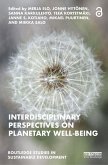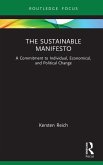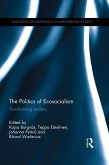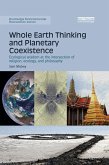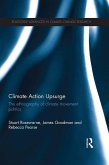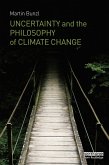Interdisciplinary Perspectives on Planetary Well-Being (eBook, PDF)
Redaktion: Elo, Merja; Salo, Miikka; Puurtinen, Mikael; Kotiaho, Janne S.; Kortetmäki, Teea; Karkulehto, Sanna; Hytönen, Jonne
0,00 €
0,00 €
inkl. MwSt.
Sofort per Download lieferbar

0 °P sammeln
0,00 €
Als Download kaufen

0,00 €
inkl. MwSt.
Sofort per Download lieferbar

0 °P sammeln
Jetzt verschenken
Alle Infos zum eBook verschenken
0,00 €
inkl. MwSt.
Sofort per Download lieferbar
Alle Infos zum eBook verschenken

0 °P sammeln
Interdisciplinary Perspectives on Planetary Well-Being (eBook, PDF)
Redaktion: Elo, Merja; Salo, Miikka; Puurtinen, Mikael; Kotiaho, Janne S.; Kortetmäki, Teea; Karkulehto, Sanna; Hytönen, Jonne
- Format: PDF
- Merkliste
- Auf die Merkliste
- Bewerten Bewerten
- Teilen
- Produkt teilen
- Produkterinnerung
- Produkterinnerung

Bitte loggen Sie sich zunächst in Ihr Kundenkonto ein oder registrieren Sie sich bei
bücher.de, um das eBook-Abo tolino select nutzen zu können.
Hier können Sie sich einloggen
Hier können Sie sich einloggen
Sie sind bereits eingeloggt. Klicken Sie auf 2. tolino select Abo, um fortzufahren.

Bitte loggen Sie sich zunächst in Ihr Kundenkonto ein oder registrieren Sie sich bei bücher.de, um das eBook-Abo tolino select nutzen zu können.
This edited collection presents planetary well-being as a new cross-disciplinary concept to foster global transformation towards a more equal and inclusive framing of well-being. Aimed at academics, researchers, and students of sustainability science, sustainable development, natural resources, and environmental humanities.
- Geräte: PC
- ohne Kopierschutz
- eBook Hilfe
- Größe: 5.08MB
Andere Kunden interessierten sich auch für
![Interdisciplinary Perspectives on Planetary Well-Being (eBook, ePUB) Interdisciplinary Perspectives on Planetary Well-Being (eBook, ePUB)]() Interdisciplinary Perspectives on Planetary Well-Being (eBook, ePUB)0,00 €
Interdisciplinary Perspectives on Planetary Well-Being (eBook, ePUB)0,00 €![The Sustainable Manifesto (eBook, PDF) The Sustainable Manifesto (eBook, PDF)]() Kersten ReichThe Sustainable Manifesto (eBook, PDF)22,95 €
Kersten ReichThe Sustainable Manifesto (eBook, PDF)22,95 €![The Politics of Ecosocialism (eBook, PDF) The Politics of Ecosocialism (eBook, PDF)]() The Politics of Ecosocialism (eBook, PDF)51,95 €
The Politics of Ecosocialism (eBook, PDF)51,95 €![Whole Earth Thinking and Planetary Coexistence (eBook, PDF) Whole Earth Thinking and Planetary Coexistence (eBook, PDF)]() Sam MickeyWhole Earth Thinking and Planetary Coexistence (eBook, PDF)56,95 €
Sam MickeyWhole Earth Thinking and Planetary Coexistence (eBook, PDF)56,95 €![Climate Action Upsurge (eBook, PDF) Climate Action Upsurge (eBook, PDF)]() Stuart RosewarneClimate Action Upsurge (eBook, PDF)47,95 €
Stuart RosewarneClimate Action Upsurge (eBook, PDF)47,95 €![Uncertainty and the Philosophy of Climate Change (eBook, PDF) Uncertainty and the Philosophy of Climate Change (eBook, PDF)]() Martin BunzlUncertainty and the Philosophy of Climate Change (eBook, PDF)57,95 €
Martin BunzlUncertainty and the Philosophy of Climate Change (eBook, PDF)57,95 €![Climate Change and Food Security (eBook, PDF) Climate Change and Food Security (eBook, PDF)]() Climate Change and Food Security (eBook, PDF)47,95 €
Climate Change and Food Security (eBook, PDF)47,95 €-
-
-
This edited collection presents planetary well-being as a new cross-disciplinary concept to foster global transformation towards a more equal and inclusive framing of well-being. Aimed at academics, researchers, and students of sustainability science, sustainable development, natural resources, and environmental humanities.
Dieser Download kann aus rechtlichen Gründen nur mit Rechnungsadresse in A, B, BG, CY, CZ, D, DK, EW, E, FIN, F, GR, HR, H, IRL, I, LT, L, LR, M, NL, PL, P, R, S, SLO, SK ausgeliefert werden.
Produktdetails
- Produktdetails
- Verlag: Taylor & Francis eBooks
- Seitenzahl: 290
- Erscheinungstermin: 26. Juni 2023
- Englisch
- ISBN-13: 9781000928884
- Artikelnr.: 68267734
- Verlag: Taylor & Francis eBooks
- Seitenzahl: 290
- Erscheinungstermin: 26. Juni 2023
- Englisch
- ISBN-13: 9781000928884
- Artikelnr.: 68267734
- Herstellerkennzeichnung Die Herstellerinformationen sind derzeit nicht verfügbar.
Merja Elo is a postdoctoral researcher of community ecology at University of Jyväskylä, Finland, covering topics from macroecology to conservation biology and restoration ecology. Jonne Hytönen is a research coordinator at University of Jyväskylä and a postdoctoral researcher at Aalto University Department of Built Environment. He conducts research on sustainability transition in spatial planning. Sanna Karkulehto is a professor of literature at University of Jyväskylä, Finland, whose most recent publications include the ESCL Collaborative Research Award Finalist Reconfiguring Human, Nonhuman and Posthuman in Literature and Culture (2020, Routledge, ed. with A-K. Koistinen and E. Varis). Teea Kortetmäki is a senior researcher in social sciences and philosophy at University of Jyväskylä, Finland. She conducts research on environmental ethics, climate policy, and sustainability transitions. Janne S. Kotiaho is a professor of ecology and director of the School of Resource Wisdom at University of Jyväskylä, Finland. He is the chair of the Finnish Nature Panel and a scientific advisor to the government of Finland in issues related to biodiversity and ecosystem restoration. Mikael Puurtinen is a research coordinator at the School of Resource Wisdom at University of Jyväskylä, Finland. He conducts evolutionary ecology research and coordinates interdisciplinary sustainability education at his home university. Miikka Salo is a senior lecturer at University of Jyväskylä, Finland. He conducts research on energy politics and environmental governance and citizenship.
Introduction to interdisciplinary perspectives on planetary well
being Part 1. Grounding the concept 1. Planetary well
being 2. Planetary well
being: Ontology and ethics 3. Ontological differences and the pursuit of planetary well
being Part 2. Assessing ecological processes as constituents of planetary well
being 4. Ecosystem health and planetary well
being 5. A landscape approach to planetary well
being 6. Soil processes are constituents of planetary well
being Part 3. Challenging the economic imperative 7. An economic tail wagging an ecological dog? Well
being and sustainable development from the perspective of entangled history 8. Local knowledge and global justice: From hegemonic development to planetary well
being 9. Consumption and planetary well
being 10. Planetary well
being and sustainable business: A work in progress Part 4. Rethinking human well
being 11. Eudaimonia and temperance: A pathway to a flourishing life 12. Psychological well
being and pro
environmental behaviour 13. The ecosocial paradigm in social work: Striving for planetary well
being Part 5. Fostering transformation towards planetary well
being 14. Extinction risk indices for measuring and promoting planetary well
being 15. Planetary well
being accounting system for organizations 16. Financial system in steering the economy towards planetary well
being 17. Towards cultural transformation: Culture as planetary well
being 18. Education for planetary well
being
being Part 1. Grounding the concept 1. Planetary well
being 2. Planetary well
being: Ontology and ethics 3. Ontological differences and the pursuit of planetary well
being Part 2. Assessing ecological processes as constituents of planetary well
being 4. Ecosystem health and planetary well
being 5. A landscape approach to planetary well
being 6. Soil processes are constituents of planetary well
being Part 3. Challenging the economic imperative 7. An economic tail wagging an ecological dog? Well
being and sustainable development from the perspective of entangled history 8. Local knowledge and global justice: From hegemonic development to planetary well
being 9. Consumption and planetary well
being 10. Planetary well
being and sustainable business: A work in progress Part 4. Rethinking human well
being 11. Eudaimonia and temperance: A pathway to a flourishing life 12. Psychological well
being and pro
environmental behaviour 13. The ecosocial paradigm in social work: Striving for planetary well
being Part 5. Fostering transformation towards planetary well
being 14. Extinction risk indices for measuring and promoting planetary well
being 15. Planetary well
being accounting system for organizations 16. Financial system in steering the economy towards planetary well
being 17. Towards cultural transformation: Culture as planetary well
being 18. Education for planetary well
being
Introduction to interdisciplinary perspectives on planetary well
being Part 1. Grounding the concept 1. Planetary well
being 2. Planetary well
being: Ontology and ethics 3. Ontological differences and the pursuit of planetary well
being Part 2. Assessing ecological processes as constituents of planetary well
being 4. Ecosystem health and planetary well
being 5. A landscape approach to planetary well
being 6. Soil processes are constituents of planetary well
being Part 3. Challenging the economic imperative 7. An economic tail wagging an ecological dog? Well
being and sustainable development from the perspective of entangled history 8. Local knowledge and global justice: From hegemonic development to planetary well
being 9. Consumption and planetary well
being 10. Planetary well
being and sustainable business: A work in progress Part 4. Rethinking human well
being 11. Eudaimonia and temperance: A pathway to a flourishing life 12. Psychological well
being and pro
environmental behaviour 13. The ecosocial paradigm in social work: Striving for planetary well
being Part 5. Fostering transformation towards planetary well
being 14. Extinction risk indices for measuring and promoting planetary well
being 15. Planetary well
being accounting system for organizations 16. Financial system in steering the economy towards planetary well
being 17. Towards cultural transformation: Culture as planetary well
being 18. Education for planetary well
being
being Part 1. Grounding the concept 1. Planetary well
being 2. Planetary well
being: Ontology and ethics 3. Ontological differences and the pursuit of planetary well
being Part 2. Assessing ecological processes as constituents of planetary well
being 4. Ecosystem health and planetary well
being 5. A landscape approach to planetary well
being 6. Soil processes are constituents of planetary well
being Part 3. Challenging the economic imperative 7. An economic tail wagging an ecological dog? Well
being and sustainable development from the perspective of entangled history 8. Local knowledge and global justice: From hegemonic development to planetary well
being 9. Consumption and planetary well
being 10. Planetary well
being and sustainable business: A work in progress Part 4. Rethinking human well
being 11. Eudaimonia and temperance: A pathway to a flourishing life 12. Psychological well
being and pro
environmental behaviour 13. The ecosocial paradigm in social work: Striving for planetary well
being Part 5. Fostering transformation towards planetary well
being 14. Extinction risk indices for measuring and promoting planetary well
being 15. Planetary well
being accounting system for organizations 16. Financial system in steering the economy towards planetary well
being 17. Towards cultural transformation: Culture as planetary well
being 18. Education for planetary well
being

